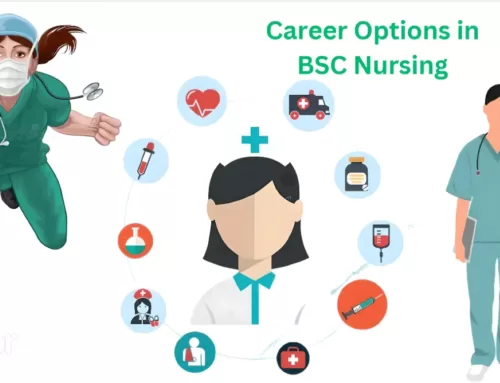Do you dream of becoming a bartender but don’t know where to begin or what it entails?
You’re in luck! This all-inclusive guide will teach you the ins and outs of how to be a bartender, covering everything from the crucial skills and qualifications to the steps you should take to jumpstart your bartending career.
So, let’s get started and explore the fascinating world of bartending!
Who Is A Bartender
A bartender, sometimes referred to as a mixologist, is a professional who mixes and serves alcoholic and non-alcoholic beverages at bars, restaurants, clubs, and events.
They play a crucial role in ensuring that patrons have a fantastic experience, as they are responsible for creating a lively atmosphere, engaging with customers, and maintaining a clean and orderly bar.
Types of Bartenders
There are numerous types of bartenders, each specializing in different environments or styles of bartending. Understanding the various roles can help you determine which path aligns with your interests and goals:
- Pub Bartender: Typically works in a local pub or tavern, focusing on serving beers, wines, and simple mixed drinks.
- Nightclub Bartender: Thrives in a fast-paced, high-energy environment, often serving a high volume of customers and crafting popular cocktails.
- Restaurant Bartender: Operates within a dining establishment, creating drinks that complement the menu and providing recommendations to guests.
- Craft Cocktail Bartender: Specializes in creating unique, artisanal cocktails using premium ingredients and advanced techniques.
- Event and Catering Bartender: Provides bartending services at private events, weddings, or corporate functions, often adapting to different themes and atmospheres.
What Is The Work Of A Bartender
A bartender’s primary responsibilities involve mixing and serving drinks, maintaining stock levels, and keeping the bar clean and organized.
However, their role goes beyond just pouring beverages.
They are also expected to provide exceptional customer service, manage transactions, comply with local liquor laws, and ensure the safety and satisfaction of patrons.
Skills Required To Become A Bartender
To excel as a bartender and meet the requirements to be a bartender, you’ll need to develop a specific set of skills that guarantee your success behind the bar:
- Knowledge of cocktails, spirits, and wine: Familiarity with various drinks, ingredients, and preparation techniques is essential for crafting beverages that customers will enjoy.
- Customer service and communication skills: Engaging with patrons, building rapport, and handling difficult situations gracefully are all crucial aspects of being a bartender.
- Time management and multitasking abilities: Juggling multiple orders, restocking inventory, and keeping the bar area clean requires excellent organizational skills.
- Cash handling and basic math skills: Accurately processing payments and providing correct change is a fundamental part of the job.
- Physical stamina and dexterity: Bartending often involves long hours on your feet, as well as the ability to quickly and efficiently mix drinks.
Bartender Requirements
While the specific requirements for becoming a bartender may vary depending on the location and establishment, some common prerequisites include:
- Being of legal drinking age
- Acquiring a bartending license or certification, if required by local regulations
- Prior experience or training in customer service or hospitality, which can be an asset when applying for bartending positions
Bartender Qualifications
Although formal education isn’t mandatory, having the right qualifications can boost your chances of landing a desirable bartending job.
Consider obtaining a bartending certification, attending bartending classes, or completing an apprenticeship to gain valuable skills and experience in the field.
Also Read: How to become a Mentalist
How To Become A Bartender: A Step-By-Step complete the
Follow these steps to become a successful bartender and kickstart your bartending career:
- Learn the basics of bartending: Acquire foundational knowledge of drinks, techniques, and equipment, either through self-study or by attending a bartending course.
- Obtain any required certifications or licenses: Depending on your location, you may need to complete a specific course or obtain a license to legally work as a bartender.
- Gain experience: Start in a related position, such as a barback or server, to familiarize yourself with the bar environment and develop essential customer service skills.
- Develop your bartender resume skills: Craft a compelling resume that highlights your relevant experience, skills, and certifications.
- Apply for bartending jobs and network: Seek out job opportunities and connect with industry professionals to increase your chances of securing a bartending position.
Best Bartending School
Choosing the best bartending school for your needs depends on factors like location, course content, and cost. Research and compare schools in your area, and consider reviews from former students to make an informed decision. Attending a reputable bartending school can provide you with valuable hands-on bartending training and help you develop the skills needed for a successful career.
These are the few Best Bartending Schools in United States:
- Elite Bartending School and Event Staffing in Fort Lauderdale
- Professional Bartending School of San Diego
- Ace Bartending Academy in Las Vegas
- New York Bartending School
- American Bartender’s School
- ABC Bartending School
Best Bartending Books
Some of the best bartending books to help you learn the craft and expand your knowledge include:
- “The Bar Book” by Jeffrey Morgenthaler
- “The Joy of Mixology” by Gary Regan
- “Liquid Intelligence” by Dave Arnold
- “The Five Points in Magic” by Juan Tamariz
- “The Bartender’s Bible” by Gary Regan
- “The Bar Book” by Jeffrey Morgenthaler and Martha Holmberg
- “Jerry Thomas Bartenders Guide 1862 Reprint” by Jerry Thomas
- “Meehan’s Bartender Manual” by Jim Meehan
- Shake ‘Em Up!: A Practical Handbook of Polite Drinking
Best Bartending Course
Selecting the best bartending course depends on your individual needs and preferences.
When evaluating courses, consider factors such as course content, duration, cost, and instructor reputation.
Online bartending courses can also be a convenient and flexible option for those looking to learn bartending remotely. Checkout best Bartending Course
Bartender Salary
The average bartender salary varies depending on factors like experience, location, and the type of establishment. Here’s a rough breakdown based on experience:
- Entry-Level: $16,000 – $25,000
- Mid-Level: $25,000 – $40,000
- Experienced: $40,000 – $60,000+ (including tips)
Keep in mind that these figures can vary significantly, and tips can greatly impact a bartender’s overall income.
Life Of A Bartender
The life of a bartender can be exciting, social, and rewarding. Bartenders often work late nights, weekends, and holidays, which means their schedules differ from those in more traditional 9-to-5 jobs. ]
The work environment can be fast-paced and sometimes stressful, but it offers the opportunity to meet new people, hone your craft, and develop a loyal customer base.
Pros & Cons
Pros:
- Opportunity to socialize and meet new people
- Flexibility in work hours and environments
- Potential for good income, including tips
- Opportunity for creativity and skill development
Cons:
- Irregular and late hours, often including weekends and holidays
- Physically demanding work
- Dealing with difficult or intoxicated customers
- Competition for high-paying bartending jobs
Summary
Becoming a successful bartender requires dedication, skill, and a passion for creating memorable experiences.
By following the steps outlined in this guide, learning from the best bartending schools, books, and courses, and continuously honing your bartender skills, you’ll be well on your way to a rewarding career behind the bar.
Whether you’re just starting out or looking to advance in the industry, remember that being a bartender offers both challenges and opportunities, but with perseverance and a positive attitude, you can achieve your goals and enjoy a thriving bartending career.
FAQs
What Education Is Needed To Become A Bartender?
No formal education required; bartending courses, certifications, or apprenticeships are advantageous.
How To Become A Licensed Bartender?
Research local regulations, complete a bartending course, and acquire necessary certifications/licenses.
How To Become A Bartender In Texas?
Obtain TABC certification, gain experience (barback/server), complete bartending courses, and apply.
How Long Does It Take To Become A Bartender?
Varies: weeks for courses, months to years for hands-on experience and skill development.
How To Become A Bartender With No Experience?
Pursue bartending courses, work as a barback/server, network, and apply for positions.
Requirements To Be A Bartender
Be of legal drinking age, possess customer service skills, and have knowledge of drinks.
Are Bartenders Allowed To Drink On The Job?
It depends; some bars allow moderate drinking, while others enforce strict no-drinking policies.
How To Get A Bartending Job?
Create a compelling resume, apply to entry-level positions, and network with professionals.




